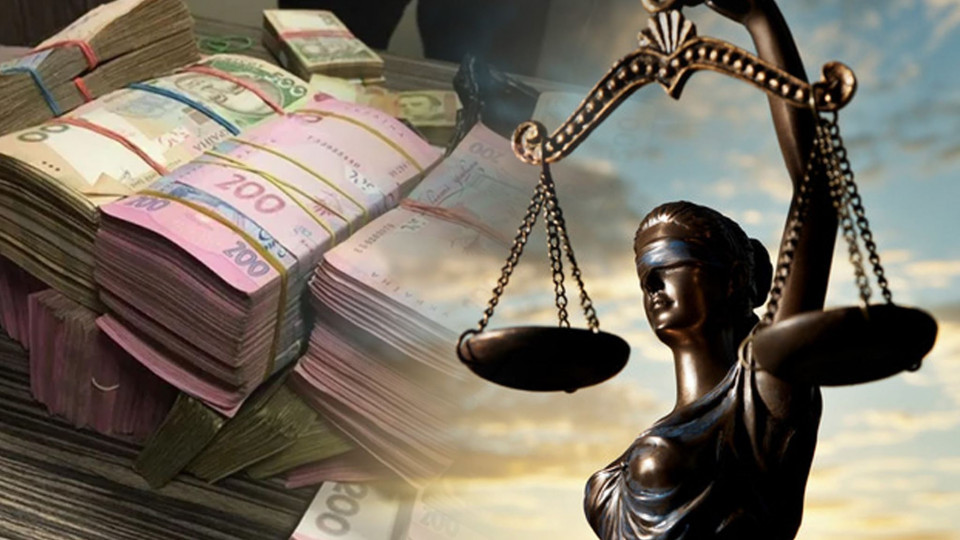 As of January 1, 2022, the procedure for refunding erroneously paid court fees on the basis of a person's application (non-procedural method) has been simplified. If previously a person had to first apply to the court with an application, and then, after receiving a submission from the court, apply to the treasury, now, based on the relevant application of the person, the court applies directly to the treasury to return the funds to the person.
As of January 1, 2022, the procedure for refunding erroneously paid court fees on the basis of a person's application (non-procedural method) has been simplified. If previously a person had to first apply to the court with an application, and then, after receiving a submission from the court, apply to the treasury, now, based on the relevant application of the person, the court applies directly to the treasury to return the funds to the person. Corresponding changes have been made to the Procedure for the return (transfer) of funds mistakenly or excessively credited to the state and local budgets (order of the Ministry of Finance dated December 8, 2021 No. 647 , which amended the order of the Ministry of Finance dated September 3, 2013 No. 787 ). In particular, the changes relate to the fact that in the process of returning funds, mistakenly or excessively credited to the budgets, the remote service system "Treasury Client – Treasury" is used using means of cryptographic protection of Treasury information.
Specialists of the Eighth Administrative Court of Appeal explain that in order to return the funds of the erroneously paid court fee, the payer must submit the following documents:
An application for the refund of the erroneously paid court fee with the mandatory indication of information in the following sequence:
- the name of the payer (business entity) or the surname, first name, patronymic (if available) of an individual (in Latin in the case of refunds in foreign currency);
- code according to the EDRPOU (for a legal entity), registration number of the taxpayer's registration card (identification number) or series (if available) and passport number (for individuals who, due to their religious beliefs, refused to accept the registration number of the taxpayer's registration card in accordance with the established procedure and have a mark in the passport) (in Latin in the case of refunds in foreign currency);
- the location of the legal entity or the place of residence of an individual (in Latin in the case of a refund in foreign currency) and a contact phone number (for an individual with his consent);
- the reason for the return of funds from the budget with a mandatory indication (if available) of the name of the relevant court and the number of the court case, according to which the payment was made;
- the name and location of the bank in which the account of the recipient of funds is opened, and the details of such an account (in Latin in the case of refunds in foreign currency);
- amount to be refunded.
The original or a copy of the transfer document, or a paper copy of the electronic settlement document that confirms the transfer of funds to the budget, or a scanned copy of the specified documents with the mandatory overlay of the payer's electronic signature, based on a qualified electronic signature certificate, in accordance with the requirements of the Law "On Electronic trust services" , provided such application is submitted in electronic form.
If necessary, a power of attorney to receive funds by a trusted person, certified in accordance with the requirements of the Civil Code , a copy of the trusted person's passport (in case of returning funds to a trusted person).
Also, the Eighth AAS reminded about the possibility of returning the court fee based on the court decision (procedural method)
In accordance with the first part of Article 7 of the Law "On Court Fees", the paid court fee shall be returned by a court order at the request of the person who paid it, in the event of:
- reducing the amount of claims or filing a court fee in a larger amount than established by law;
- returning an application or complaint;
- refusal to open proceedings in the court of first instance, appeal and cassation proceedings in the case;
- leaving an application or complaint without consideration (except for cases where such applications or complaints are left without consideration in connection with the repeated non-arrival or leaving of the court session by the plaintiff without valid reasons and failure to submit an application for consideration of the case in his absence, or failure by the plaintiff to submit the materials required by the court, or at his request (petition);
- closing (termination) of the proceedings in the case (except for cases where the proceedings in the case are closed due to the plaintiff's refusal of the claim and such refusal is recognized by the court), including in appeal and cassation instances.
The requirements for the form and content of the petition for the return of the court fee are determined by Articles 167 of the Code of Administrative Procedure , 170 of the Code of Economic Procedure , 183 of the Code of Civil Procedure .




